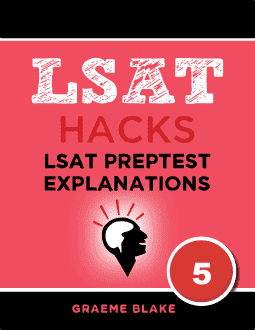QUESTION TEXT: The journalistic practice of fabricating remarks after…
QUESTION TYPE: Flawed Reasoning
CONCLUSION: The journalistic practice of making up quotations is entirely defensible.
REASONING: The made-up quotations often convey the ideas of the quoted person better than their own spoken words, which are unclear.
ANALYSIS: They do make a good case that people’s own words can be more confusing than made up quotations. But that’s no justification for inventing false quotations.
Instead, why couldn’t journalists simply explain the full meaning of the quoted person’s words? That shouldn’t be hard if the journalist truly understands the ideas.
___________
- The stimulus doesn’t even mention an opponent. It’s hard to do an ad hominem attack without mentioning someone.
- The stimulus doesn’t depend on prestige: it gives actual reasons why the practice is defensible.
- CORRECT. Yes. There could be other ways of solving the problem apart from making stuff up.
- That is not what the stimulus did. It didn’t even argue that the practice is necessary.
- Actually, the stimulus argued that the practice was appropriate.
Recap: The question begins with “The journalistic practice of fabricating remarks after”. It is a Flawed Reasoning question. Learn how to master LSAT Flaw questions on the LSAT Logical Reasoning question types page.


Leave a Reply